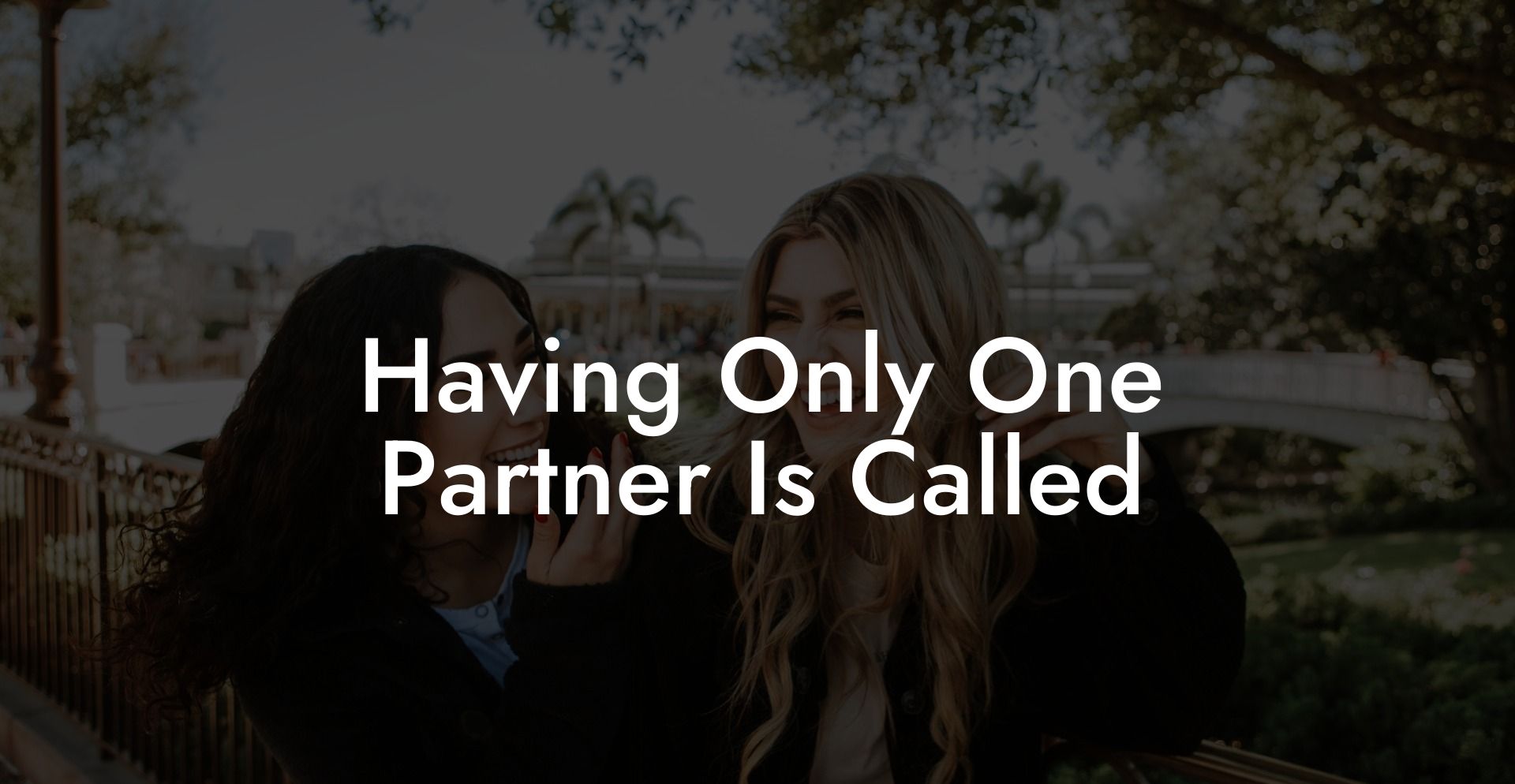Have you ever been curious about the different relationship structures and the terminology surrounding them? In a world that is breaking away from traditional norms, it is essential to educate ourselves about diverse relationship types. In this article, we will discuss the term used when a person has only one partner, its significance, and how it plays a role in various relationship structures.
Having Only One Partner Is Called Table of Contents
Monogamy: A Traditional Relationship Structure
Monogamy: A Traditional Relationship Structure
Having only one partner is called monogamy. It is the most common and widely accepted form of intimate relationship in most cultures. Monogamy involves being romantically, sexually, and emotionally committed to one person at a time. This type of relationship may be a choice or may come naturally to some people due to various reasons, including culture, personal values, and upbringing.
Types of Monogamy
Monogamy can be further classified into two types:
- Serial Monogamy - This is when a person has multiple monogamous relationships throughout their life, but only one partner at a time. When a relationship ends, the person moves on to another partner after a period of time.
- Lifelong Monogamy - This is when a person remains committed to one partner for their entire life. This is often the ideal for many people who believe in “true love” or “soulmates” and is often the aim of marriages and long-term partnerships.
Comparing Monogamy to Other Relationship Structures
As society evolves, different relationship structures are becoming more prevalent, and it's essential to understand how monogamy compares to these alternatives. Two of the most common alternatives to monogamy include:
Polyamory
Polyamory is a relationship structure where individuals have multiple romantic, emotional, or sexual relationships simultaneously, with the full knowledge and consent of all parties involved. This approach to relationships focuses on open communication, trust, and understanding. It allows for a diverse range of connections within a relationship, something monogamy by definition, does not.
Open Relationships
An open relationship is a type of non-monogamous relationship, where partners agree to allow each other to engage in sexual or romantic relationships with others. The primary distinction between an open relationship and polyamory is that open relationships generally don't involve emotional connections with other partners, whereas polyamorous relationships can.
Why People Choose Monogamy
Some people choose monogamy for various reasons, such as:
- Social and cultural norms - Monogamy is the most widely-accepted form of relationship in many cultures, and individuals may simply follow these norms without questioning alternatives.
- Personal values - Some individuals may feel more comfortable in a monogamous relationship, as it aligns with their personal beliefs and values.
- Security and stability - Monogamous relationships can provide a sense of stability and security, as the commitment to one person may foster stronger emotional bonds compared to a non-monogamous relationship.
- Less risk of complications - Non-monogamous relationships can be more complex, requiring open communication, understanding and consent of all parties involved. Monogamy can provide a simpler and more straightforward approach to relationships for some individuals.
Having Only One Partner Is Called Example:
John and Mary had been friends since their college days, and after several years, they decided to pursue a romantic relationship. They both came from traditional families and believe in the value of lifelong commitment. Due to their upbringing and personal values, John and Mary chose to be in a monogamous relationship, providing mutual love and support to each other, and focusing on growing deeper in their connection with one another.
Having a clear understanding of what monogamy is and the role it plays in different relationship structures is vital in today's ever-evolving society. By identifying your personal preferences and values, you can make an informed decision on the relationship type that resonates most with you. Share this helpful article with others who may be curious about relationship structures and be sure to check out our other articles for comprehensive guides on monogamy, non-monogamy, and polyamory at The Monogamy Experiment.













